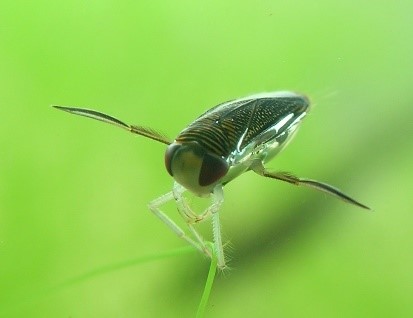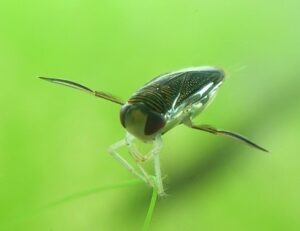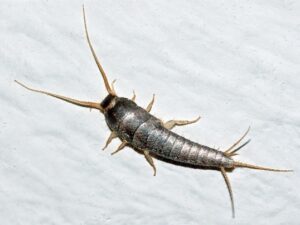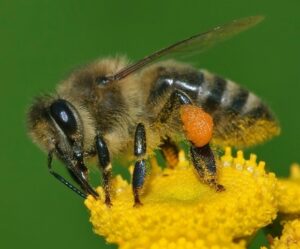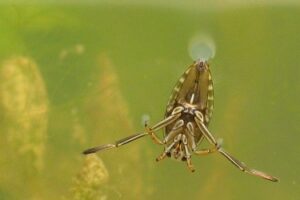Water Boatman
Leasse Water Boatman
General Description
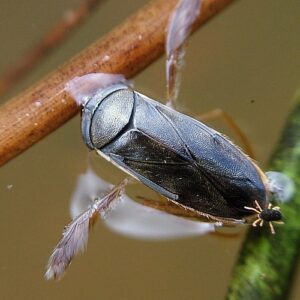
Credit: Andy Reago |
Credit: Piet Spaans |
- It is a water-dwelling insect.
- Adults have a long, flattened body ranging from 0.5 to 1.5 cm long. They have fine dark brown or black striations marking the wings.
- They have 2 short front legs and 4 long rear legs. · Its body resembles the shape of a boat and the forelegs are covered with hairs and shaped like oars, hence the name “water boatman”.· They also have a triangular head and short mouthparts.
Life Cycle and Common Characteristics
- Adults overwinter.
- Eggs are laid, between January and April, on the stems of aquatic plants.
- Eggs are deposited on submerged plants, rocks, or sticks, but eggs fail to hatch above 0.5% salinity.
- The larval stage lasts for 3 to 4 months.
- First adults appear in July.
- They are found in household pools, ponds, brackish water, and slow-flowing rivers, usually in neutral to alkaline water.
- They are omnivorous insects and feed on aquatic plants, algae, and animal materials.
- They have long and strong hind legs which they use to swim and float on the surface of the water
- They swim right side up (unlike the backswimmers who swim upside down).
- They breathe oxygen by trapping air beneath their wing cases (oxygen is trapped by tiny hairs).
- They are herbivores and swim on their fronts.
- There are 1 to 2 generations per year.
- They are strong flier and readily migrates if conditions become unsuitable.
Damages and Economic & Medical Implications
Leasse Water Boatman is considered to be an annoying pest, especially in swimming pools.

